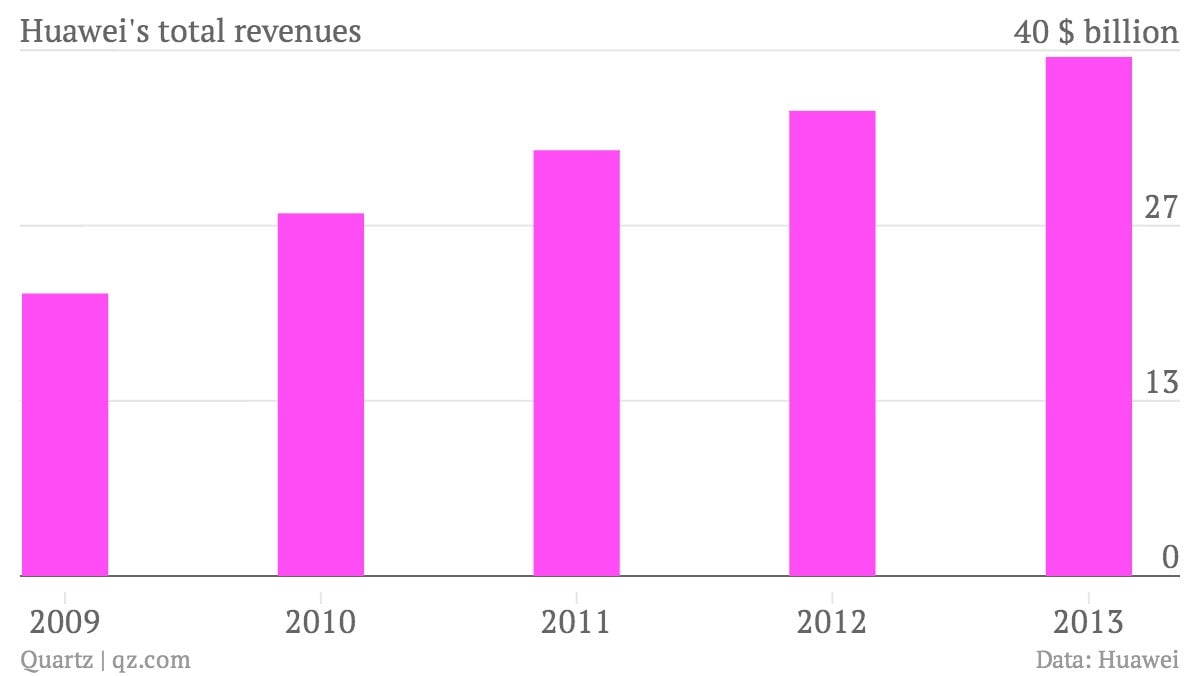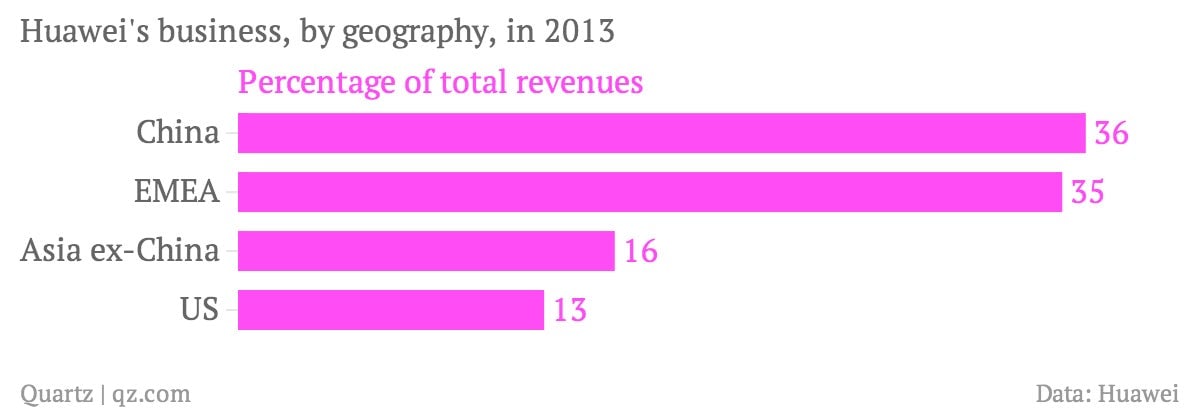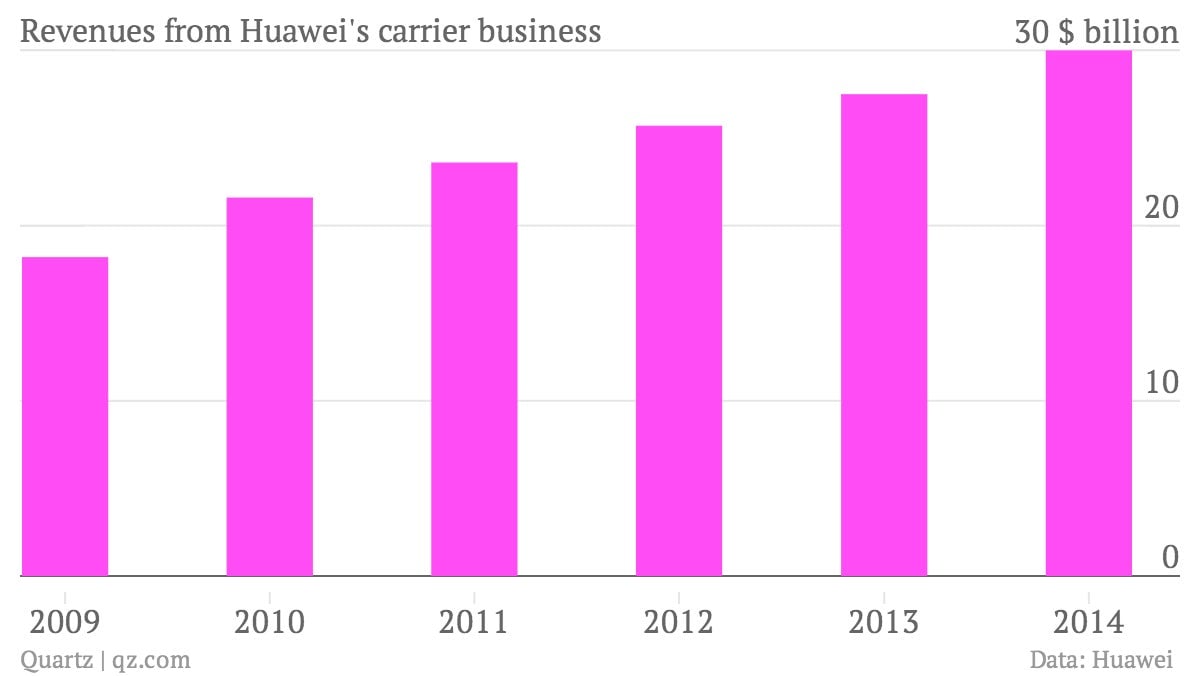The US just isn’t that important a market for Huawei, after all
After failing to convince the US government that it wasn’t being used by Beijing to spy on American businesses and citizens, Huawei Technologies, the Chinese equipment giant, said last year it was no longer interested in the US market.


After failing to convince the US government that it wasn’t being used by Beijing to spy on American businesses and citizens, Huawei Technologies, the Chinese equipment giant, said last year it was no longer interested in the US market.
And as it turns out, despite the fact that the US is a massive market for consumer and business telecommunications, throwing in the towel there has not hurt Huawei much.
During an annual analyst meeting (held this week at a Spanish bullfighting-themed hotel in Shenzhen), Huawei executives broadcast rosy growth projections for company’s future revenues, new ventures and core business. Annual revenues were up 8.5% to $39.5 billion in 2013, Huawei said.

Revenue growth has tapered from recent years, but 8.5% is still a huge improvement over the world’s other large equipment supplier, Ericsson, where revenues flatlined in 2013. By 2018, Huwai predicts that annual revenues will double to about $80 billion.
Growth has come from European carriers under intense pressure to keep costs low while they upgrade their networks, a new focus from China on buying Chinese, and new business in Australia and the rest of the Asia Pacific region. The Americas (mostly the US) were the only area where Huawei’s revenues fell in 2013, down 1.3%, executives said. Sales in Europe, the Middle East and Africa (mostly Europe) are nearly as big as in China.

Huawei’s core carrier business, which supplies mobile carriers with the hardware and infrastructure that makes telecommunications work, is expected to grow by $10 billion in the next five years, executives said, even if doesn’t get any new business from the US, to reach $40 billion by 2018.

Those growth projections don’t rely on increased sales in in the US. “The assumption is there will be no fundamental change in the US,” Ken Wang, president of marketing and solutions in Huawei’s carrier business group, said during the meeting. “If there is a big change in [policy] there may be a big increase, but that can’t be for sure.”
Analysts at the meeting said that Huawei had continued to grow because it was focusing on what its customers wanted, and because its prices were lower than many of its major competitors. It is doing well in countries where spying concerns take a backseat to other issues. “Eh, there are some concerns about security,” explained one French analyst, who did not want to be named criticizing the company. “But, they are cheap.”